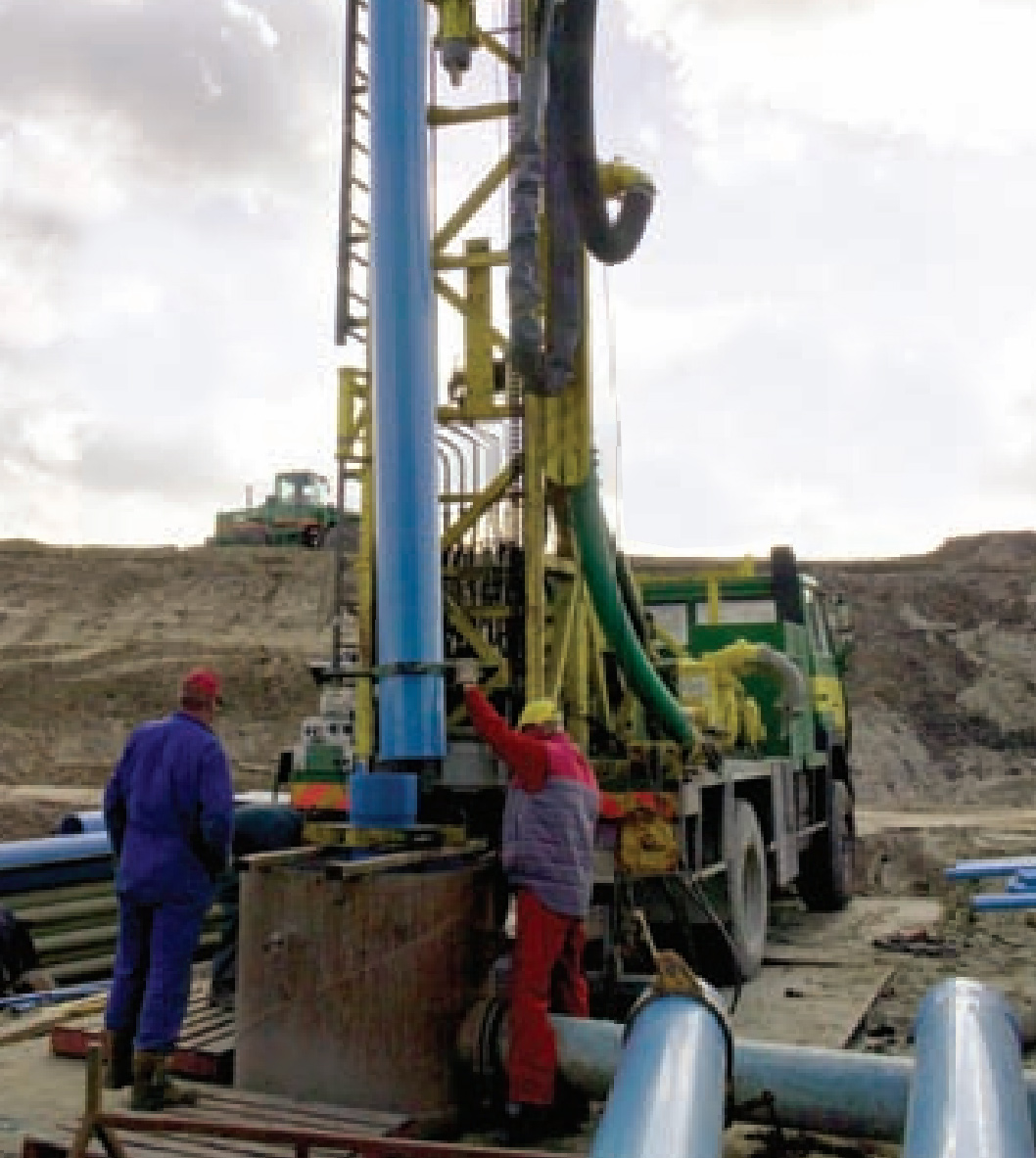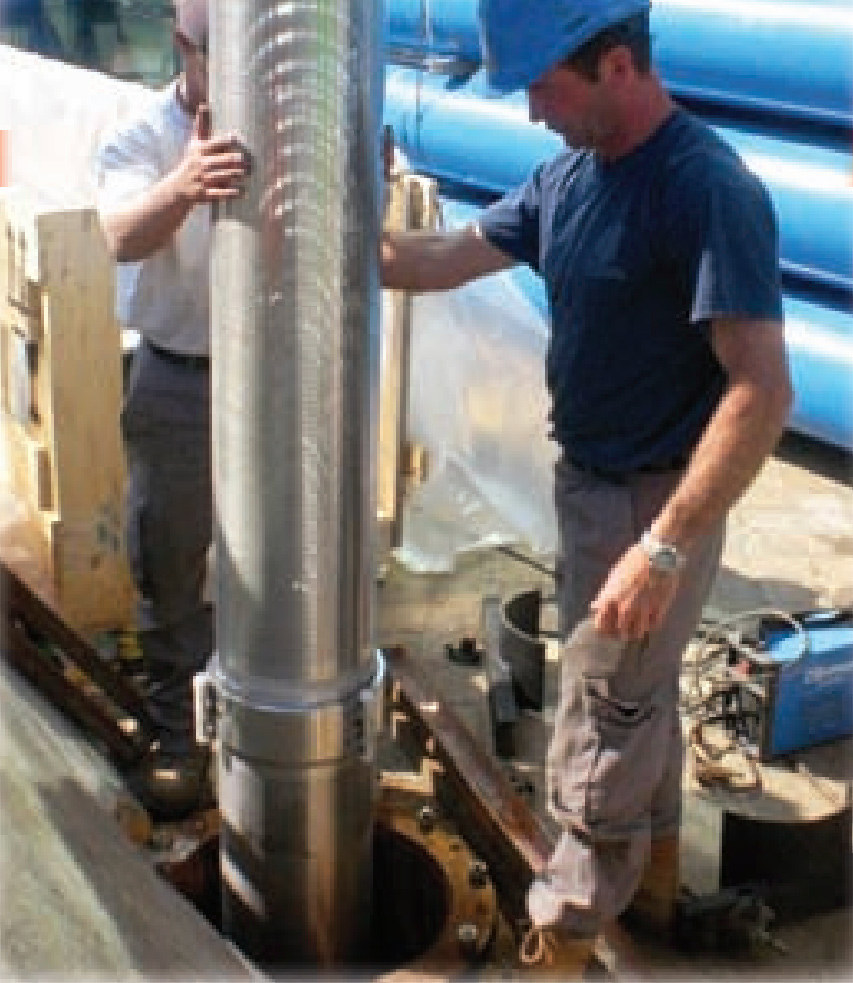Making the grade
Boode Waterwell Systems looks at the effect of the Private Water Supplies Regulation 2009 on the installation of water well casings and screens
 Ask anyone in the water industry and they will agree that the way in which a water well is constructed is critical to its productive life. Its durability and efficiency depends to a large degree on the design, construction procedures, and the selection of the casing and well screen. While representing a fraction of the total investment, the casing and screen are critical to the life of the well and the pump, as well as influencing the yield and operating expenses. They also perform a vital function in minimising the risk of potential contamination, and nowhere is this more pertinent than in the provision of private water supplies for human consumption. Private water supplies are those which are not provided by a water company. It is estimated that there are 42,000 such supplies in England and Wales, providing more than 330,000 people with water. With growing public interest in reducing energy costs and creating a more sustainable lifestyle, this number is expected to rise. Without proper regulation of private supplies, a significant percentage of the population could be exposed to inherent risks in consuming unwholesome water. There is a potential of contamination through corrosion or leaching from hazardous materials; something that can be evaluated during a risk assessment of the supply.
Ask anyone in the water industry and they will agree that the way in which a water well is constructed is critical to its productive life. Its durability and efficiency depends to a large degree on the design, construction procedures, and the selection of the casing and well screen. While representing a fraction of the total investment, the casing and screen are critical to the life of the well and the pump, as well as influencing the yield and operating expenses. They also perform a vital function in minimising the risk of potential contamination, and nowhere is this more pertinent than in the provision of private water supplies for human consumption. Private water supplies are those which are not provided by a water company. It is estimated that there are 42,000 such supplies in England and Wales, providing more than 330,000 people with water. With growing public interest in reducing energy costs and creating a more sustainable lifestyle, this number is expected to rise. Without proper regulation of private supplies, a significant percentage of the population could be exposed to inherent risks in consuming unwholesome water. There is a potential of contamination through corrosion or leaching from hazardous materials; something that can be evaluated during a risk assessment of the supply.
REGULATION OF PRIVATE WATER SUPPLIES
It is against this background that the government introduced new Private Water Supplies Regulations, which came into force on January 1, bringing increased regulation and scrutiny to private supplies. Drafted to meet the UK’s obligation under the EU Drinking Water Directive (DWD) 98/83/EC, the regulations aim to provide greater protection of human health by ensuring water from private supplies is fit for human consumption, and meets certain microbiological and chemical criteria. The DWD covers both public and private water supplies. Traditionally, the latter have been subject to far less scrutiny, and it is this regulatory gap that the government seeks to address. The regulations cover situations where water is abstracted from rivers, lakes, streams and boreholes for human consumption. Such situations could range from a household on a single water supply to a large estate, military base or festival event. The main focus of the regulations is the assessment of risk, which is informed by monitoring the quality of the water, and this is performed by the local authorities. Correct borehole construction plays a vital role in maintaining water quality and this has now been acknowledged by the inclusion of Regulation 5: “any product or substance used in a private supply after the coming into force of these regulations must be a product or substance that would be permitted to be used in a water supply under regulation 31 of the Water Supply (Water Quality) Regulations 2000.” Regulation 31, with certain limited exceptions, requires that only products that have been approved by the secretary of state may be applied or introduced into water that is to be supplied for domestic purposes or food production. The Drinking Water Inspectorate (DWI) is the regulator that ensures water undertakers in England and Wales comply with these regulations. Failure to comply may result in prosecution. Scotland and northern Ireland follow a similar process.
 GAINING PRODUCT APPROVAL
GAINING PRODUCT APPROVAL
The introduction of Regulation 5 represents a significant change, but, as Malcolm Gamble of the Well Drillers association, points out: “We have been involved on the periphery of government consultations on the private water-supply regulations for a number of years. We are delighted that the same standards now apply to both private and public supplies. Like the DWI, one of our priorities is that consumers can be confident that their water supply – private or public – is safe and fit for human consumption. “our members already recognise the importance of using high-quality materials in the construction of wells and boreholes.
Incorporating a requirement for the use of approved products within the regulations can only benefit our industry and maintain the strong reputation that our members already enjoy.” as the first casing and screen companies to achieve approval under Regulation 31, Boode Water well Systems and Johnson Filtration Systems are well aware of the significance of this change.
“The approval process is lengthy, complex and very expensive, but we feel it was worth every penny,” comments Scott Dronsfield of Boode UK, which also supplies Johnson casings and screens. “Working in the water industry brings an element of responsibility to the public and it is imperative that we protect the quality of our water at every level.” approvals under Regulation 31 are assessed by the DWI, taking into account, among other things, the results of leaching tests and toxicological issues. one of the main focuses of the assessment is the potential for a product to release harmful organic substances into water supplies for human consumption; a serious concern that is not fully addressed in the WRaS tests (BS 6920).
“The DWI requires extensive information on the product, including the complete composition of each component that comes into contact with water,” continues Mr Dronsfield. “We had to release confidential information to the DWI about both our manufacturing processes and those of our suppliers. all of our products underwent rigorous testing.” How the local authorities monitor and enforce Regulation 5 will be set out in DWI guidance to be published in the near future. DWI principal inspector Dr Kevin White says: “The inspectorate will be shortly issuing guidance in a letter to local authorities, explaining the way in which conformance with Regulation 5 of the Private Water Supply Regulations will be satisfied, taking into account the wide range of products and substances that the regulation covers.” Mr Dronsfield concludes: “The drilling contractors that we work with take their responsibilities very seriously and have always used reputable companies, like ourselves, for their products. However, complete transparency can only benefit both the industry and consumers of private water supplies.
“There is huge confidence in the quality of well casings and screens in the water industry, but the question of provenance will always be there until all products are registered and approved. “Class action in the US against JM Eagle – one of the biggest PVC pipe extruders – for alleged production of substandard water and sewer pipe is just one example of how companies in our industry are coming under global scrutiny. The case is ongoing, but, whatever the outcome, we need to ensure that public confidence in the high standards within our industry is maintained,” adds Mr Dronsfield.